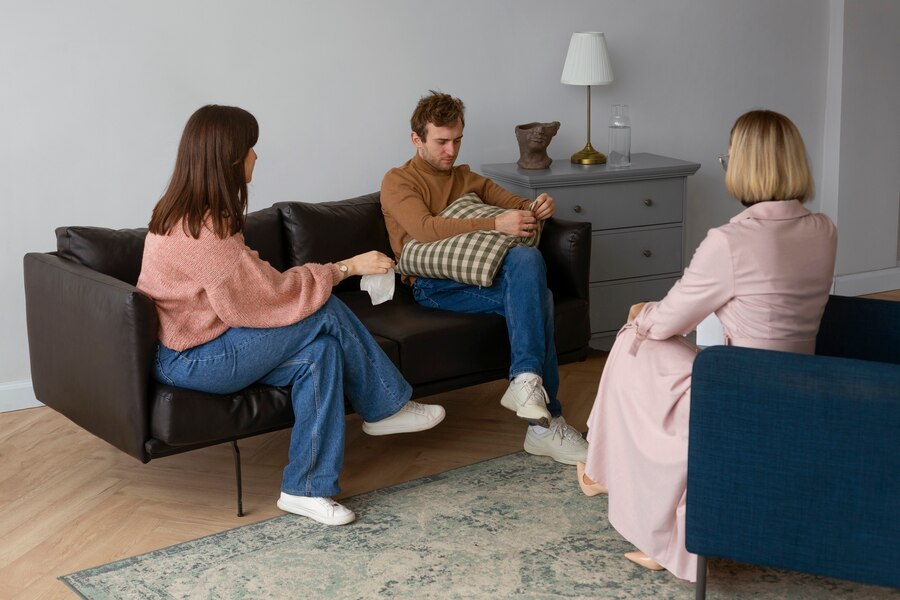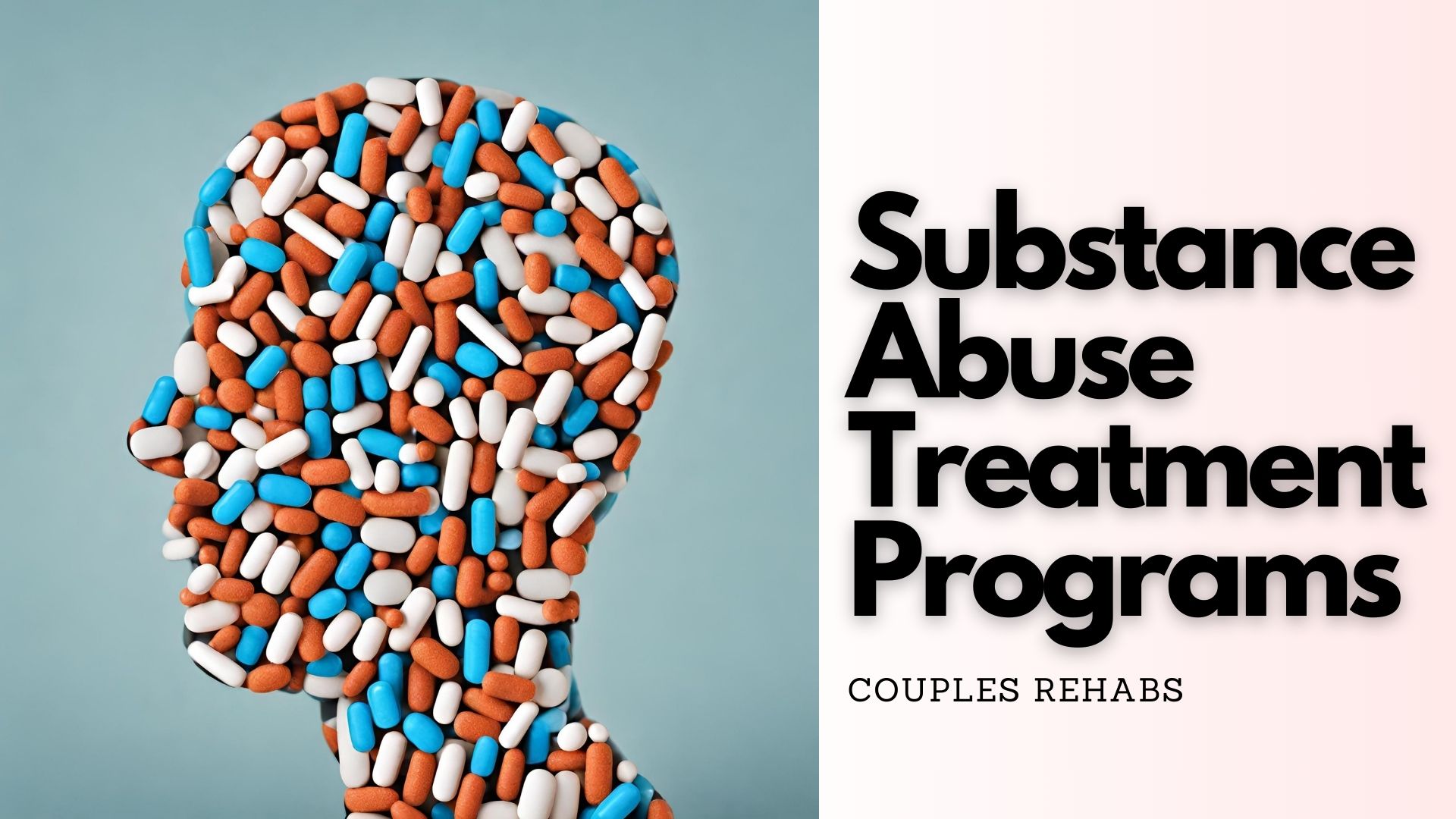Outpatient Treatment Programs
Outpatient treatment programs offer a valuable alternative for individuals seeking addiction recovery and mental health support while maintaining their daily responsibilities. These programs allow participants to receive professional treatment and support without the need for a residential stay. This flexibility can be particularly beneficial for those who require a structured treatment plan but do not need or prefer not to undergo inpatient care. Couples Rehabs specializes in providing comprehensive outpatient treatment options designed to meet the diverse needs of individuals and couples seeking recovery.
In this guide, we will explore the essentials of outpatient treatment programs, including their benefits, various types, and how they differ from inpatient care. Understanding these aspects can help you make informed decisions about your or your loved one’s treatment journey.
What Are Outpatient Treatment Programs?
Benefits of Outpatient Treatment
Types of Outpatient Programs
Outpatient programs vary in structure and intensity, allowing individuals to choose the option that best fits their needs. Common types of outpatient programs include:
- Standard Outpatient Programs: These programs offer regular therapy and counseling sessions, usually on a weekly basis. They are ideal for individuals who have a strong support system and require less intensive treatment.
- Intensive Outpatient Programs (IOP): IOPs provide more frequent therapy sessions, typically several times a week. They are suitable for individuals who need more structured support and are transitioning from inpatient care or require a higher level of care while managing daily responsibilities.
- Partial Hospitalization Programs (PHP): PHPs offer a higher level of care than standard outpatient programs, with daily treatment and therapy sessions. Participants attend the program during the day and return home in the evening. This option is for individuals who need intensive treatment but do not require 24-hour supervision.
How Outpatient Programs Differ from Inpatient Care
Outpatient and inpatient treatment programs differ primarily in their structure and level of care. Inpatient care requires individuals to stay at a treatment facility full-time, providing a highly structured environment with 24-hour medical and psychological support. This type of care is often recommended for individuals with severe addiction or mental health issues who need constant supervision and a controlled environment to focus on their recovery.
In contrast, outpatient programs allow individuals to live at home and attend treatment sessions part-time. This approach offers more flexibility and is suitable for those with a stable home environment and support system. Outpatient care focuses on providing therapy and support while allowing individuals to continue their daily routines and responsibilities.

Therapy Options Available in Outpatient Settings
Outpatient treatment programs offer a range of therapy options to address various aspects of addiction and mental health. Common therapy options include:
- Individual Therapy: One-on-one sessions with a therapist to explore personal challenges, set goals, and develop coping strategies. Individual therapy allows for personalized attention and tailored treatment plans.
- Group Therapy: Sessions with a group of individuals facing similar challenges. Group therapy provides support, fosters shared experiences, and offers a sense of community.
- Family Therapy: Involves family members in the treatment process to address relational issues and improve communication. Family therapy helps build a strong support network and resolves conflicts that may impact recovery.
- Behavioral Therapy: Techniques such as Cognitive Behavioral Therapy (CBT) that focus on changing negative thought patterns and behaviors. Behavioral therapy helps individuals develop healthier coping mechanisms and problem-solving skills.
The Role of Support Groups in Outpatient Treatment
Support groups play a crucial role in outpatient treatment by providing a platform for individuals to connect with others who are facing similar challenges. These groups offer emotional support, encouragement, and practical advice from peers who understand the recovery process. Participation in support groups can enhance motivation, reduce feelings of isolation, and reinforce the skills learned in therapy.
Support groups may be facilitated by professionals or led by peers, and they often focus on specific issues related to addiction or mental health. By sharing experiences and offering mutual support, group members can gain valuable insights and build a network of people committed to their recovery.
Flexible Scheduling and Its Impact on Recovery
Flexible scheduling is one of the key advantages of outpatient treatment programs. This flexibility allows individuals to attend therapy sessions at times that fit their personal schedules, making it easier to balance treatment with work, family, and other responsibilities. Flexible scheduling helps reduce the stress and disruption often associated with intensive treatment programs.
The ability to integrate treatment into daily life can also enhance the effectiveness of outpatient programs. By applying therapeutic techniques and coping strategies in real-world settings, individuals can reinforce their recovery and make meaningful progress toward their goals.
How to Choose the Right Outpatient Program for Your Needs
Outpatient Programs at Couples Rehabs
-
What is outpatient treatment, and how does it differ from inpatient care? Outpatient treatment provides therapy and support services without requiring a stay at a residential facility. Unlike inpatient care, it allows individuals to maintain their daily responsibilities while addressing addiction.
-
What are the different levels of care within outpatient treatment programs? Outpatient treatment offers varying levels of intensity, including intensive outpatient programs (IOP), partial hospitalization programs (PHP), and general outpatient programs.
-
Is outpatient treatment effective for addiction recovery? Outpatient treatment can be highly effective for individuals with less severe addictions or those who have completed inpatient care. It focuses on developing coping skills and relapse prevention strategies.
-
What kind of therapy is typically offered in outpatient treatment programs? Outpatient programs often incorporate individual, group, and family therapy, along with other therapeutic modalities like cognitive-behavioral therapy (CBT) and dialectical behavior therapy (DBT).
-
How often are outpatient treatment sessions typically scheduled? The frequency of outpatient treatment sessions varies depending on the program’s intensity. Sessions can range from several times a week to once a week.
-
Can I work or attend school while in outpatient treatment? Yes, outpatient treatment allows individuals to maintain their daily responsibilities, including work or school. However, it’s essential to balance treatment with other commitments.
-
What is the role of aftercare following outpatient treatment? Aftercare is crucial for long-term recovery. Outpatient programs often provide resources and support to help individuals transition back into their lives and prevent relapse.
-
How can I find an outpatient treatment program that meets my needs? Research treatment centers, consider factors like location, cost, insurance coverage, and treatment modalities. Reading reviews and seeking recommendations can also be helpful.
-
What is the cost of outpatient treatment compared to inpatient care? Outpatient treatment is generally less expensive than inpatient care. However, costs can vary depending on the program and the level of intensity.
-
Can I combine outpatient treatment with other forms of support, such as support groups? Absolutely. Outpatient treatment complements support groups and other recovery resources. Combining different forms of support can enhance the recovery process.








Recent Comments